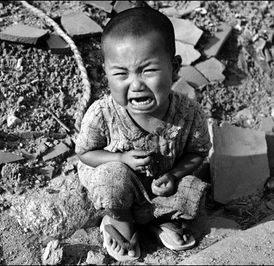
~ Stephen Hawking
The politicians, pundits and journalists who are against the Iran Nuclear Agreement focus on one point: it’s not perfect and could be better.
Most of us know from experience that humans are not perfect. Isn’t it unrealistic to expect that any agreement created by imperfect beings be perfect?
We are not in a position to force capitulation. Negotiation is a process that creates a path forward in which each party retains its dignity, propelled by the desire to give up something of personal value in order to gain something of greater value for everyone. Agreements are never perfect.
If Congress thwarts this agreement, what are the alternatives? We could continue and even increase sanctions, but our allies will not stand by our side, and if we are the only country applying sanctions the effects will be minimal—not a perfect alternative. Fifty years of embargoing and sanctioning Cuba has shown us that these alternatives can and will cause increased defiance. We imposed strict sanctions on Russia, yet Putin doesn’t seem a bit inclined to return Crimea.
We could also go to war, but we all know how imperfect war is. We only have to look at recent history to remember that in modern war there is seldom a clear winner and the costs are staggering and tragic. Consider:
Korean War:
No winner emerged. Instead, Korea remains divided and the North retains the capability of making a nuclear bomb(s). The war was waged at a great cost in terms of money and lives.
Vietnam War:
Objectively, North Vietnam, the communists, achieved their goals of reuniting and gaining independence for the whole of Vietnam, and it remains under communist rule today. The U.S. dropped more than 7 million tons of bombs—more than twice the amount that was dropped on Europe and Asia in World War II—and we lost more than 58,000 young lives. Not a perfect solution or result.
Gulf War:
The aftermath of the Persian Gulf War appeared to be a victory, but what we learned is that the victory was hollow. Saddam Hussein was not forced from power and the region became less stable. Many believe that this war helped to make Al Qaeda a force that would later strike our homeland.
Iraq War:
The initial stage of the war was a raging success—the banner proclaimed “Mission Accomplished.” Yet, the war created eight years of sectarian violence, 4,900 American lives lost and many more severely injured, and it amounted to a trillion dollar debt from which we still haven’t recovered. Iraq is still incapable of defending itself, and it gave rise to ISIS.
We need to ask ourselves if an imperfect agreement that may produce peace and diminish the potential of a nuclear Middle East is a better risk than the alternatives. Or are we willing to put our country and the world at risk by pursuing alternatives that have a dismal and tragic record. Can we afford to risk isolating ourselves from our allies, countries critical to solving the world’s most urgent problems? Are we willing to once again shed the blood of our youth by waging war?
Writer Archibald McLeish said, “There is only one thing more painful than learning from experience and that is not learning from experience.” We have a clear choice. The Iran Nuclear Agreement has risks, but experience has shown that the alternatives are much more costly in terms of world standing, capital and human lives. All our options are imperfect and risky, but the greater risk here is repeating the past when we have a chance to take a risk for peace instead.
 RSS Feed
RSS Feed
